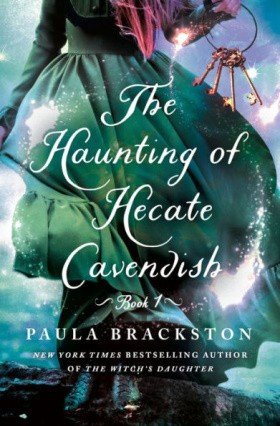Hecate squirmed beneath his gaze.
“I realize,” she said, “that my request may be somewhat unusual.”
“It is out of the ordinary,” he agreed, his voice hoarse through lack of use, she suspected, rather than the opposite. “Though not as uncommon as you might suppose,” he added.
“Indeed? In that case I am even more confident you will be able to help me.”
“I am able,” he said, “but ability should not be the master of judgment, now, should it?”
“I’m sorry?”
“There are rules by which I am to abide, else I might find myself hauled before the magistrate.”
“Oh?” She strove for a tone between ignorance and reassurance.
“With there being no available keys to copy, the only way to proceed would be to have impressions made.”
“Impressions?”
“The key is pressed into a substance that would hold its shape,” he explained. “T’would be possible to produce a duplicate in such a fashion.”
“I see. And what substance would one use? In such a case?”
“Wax is favored. Soap gives less reliable results.”
A silence followed. Hecate hesitated. She did not wish to push too hard for fear the old man would decide against helping her. She knew she was asking something of him that could get him into trouble. She did not have spare money with which to bribe him, and in any case, she sensed he might not be a person to be bought. She must win his confidence.
“My father is an archeologist,” she said. “Retired now, but with a splendid collection. Many valuable items. It is these I assist him with. Cataloging, repairing, and so forth. His name is Edward Cavendish, perhaps you have heard of him?”
“I have not.”
“No? His work in Mesopotamia is well regarded and widely known.…” She faltered, certain she was losing him. “I was so hoping you might be able to accommodate us.”
“As I say, ’tis without the bounds of what is lawful. I cannot help you.”
Hecate opened her mouth to plead her case further but knew she had nothing more to offer in support.
“Then I shall take up no more of your time,” she said, turning to leave.
“Wait.” The old man narrowed his eyes at her.
She followed the line of his gaze and saw that he had noticed the cameo she was wearing.
He leaned forward over the counter, his own lack of height making this a somewhat difficult maneuver.
“Where did you come by that?” he asked, pointing, his finger stained with boot polish and leather dye.
Hecate stepped into the pool of lamplight. “It was a present from my father.”
Mr. Sadiki blinked as he examined it more closely. “The goddess of magic,” he muttered. “Queen of witches. Companion to the dead.” He looked up at her then. “A strange choice of gift for a parent to give his child,” he observed.
“Not that parent. Not this child.” She smiled. “My name is Hecate,” she told him.
He stared at her.
She waited.
He drew back a little.
“How many?” he asked.
“I beg your pardon?”
“How many keys?”
“Oh, let me see, um, two large ones—door keys—one slightly smaller, for … a different sort of lock, one for a large cabinet, and another for a small padlock. So five in all.” She had struggled long and hard with the matter of which keys she should obtain. In the end her conscience had stopped her short of getting a key to the cathedral itself. Her reasoning was that, should her set for any reason fall into the wrong hands, no one outside the employ of the cathedral would be able to use them anyway, as they would not be able to gain entry to the building.
Without another word Mr. Sadiki disappeared back through the doorway into the darkness of the second room. Hecate could hear drawers being opened and shut, boxes being rummaged through. A few moments later he returned. Upon the counter he set down five slender tins of varying sizes. He opened the hinged lid of the first one to show the contents: a block of creamy wax.
“Use one for each key,” he said. “You must make two impressions, so that you record both sides of the key.”
“Both sides, yes, I see.”
“Take care not to damage the surface or the copy will not be accurate.” He snapped shut the tin, stacked it with the others, and deftly wrapped them in a sheet of brown paper, tying the parcel with string displaying a dexterity that belied his old eyes and arthritic fingers. He pushed the bundle toward her.
“How much will that be?” she asked, reaching for the purse in her pocket.
“Pay me when they’re done.”

























